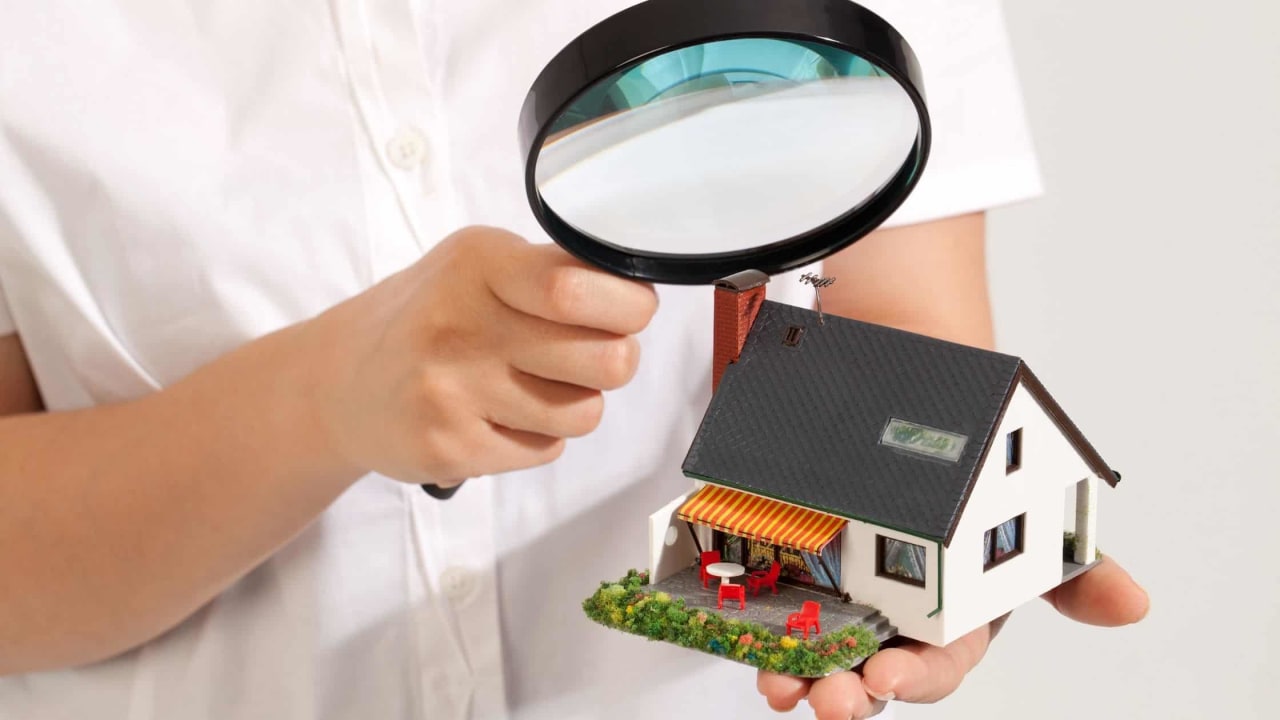What’s the one inspection that you should never ever skip when you’re buying a home? It’s simple. The home inspection. Never skip the home inspection.
There’s lots of other inspections that you can get, but never, ever, ever skip the home inspection. I can hear your objection now. “Wait, Barry, buying a home is so expensive enough as it is. Why should I have to spend all this extra money, hundreds of dollars if it’s not even required?”
Well, years ago in the early 1990s, way back in the day when I entered the real estate business, the days of the covered wagons home inspections were not the rule; but today, all that has changed and almost all buyers order a home inspection before purchasing a home. Personally, I would never recommend to my clients buying any home without a home inspection.
If you’re a buyer, maybe you love surprises, right? Surprise birthday party, surprise dinners, surprise gifts—but the one surprise that you do not want is a surprise that you’ve bought your home and you’ve found out that there’s now
something wrong with it. You do not want your home purchase to come back and bite you after close of
escrow. Trust me.
So I would recommend that as a buyer, you always, always, always order a home inspection because skipping the home inspection could cost you thousands of dollars down the road once a major defect is discovered. And don’t just believe me—that actually happened to one of my clients a couple of years ago. As their buyer’s agent, I encouraged them to get a home inspection on the house they were buying, but the husband said, “Oh, no, I don’t need a home inspection. Those home inspectors they don’t really know what they’re doing anyway and it’s way too much money. I’ll do my own home inspection.” I thought, “Oh wow, this is not going to be good.” And lo and behold, they came home from a vacation and their house was flooded by a defective automatic sprinkler that had not been installed correctly. And a home inspector probably would have saved them thousands of dollars in repairs.
Did you also know that if a home inspection uncovers significant problems, you’ve got all kinds of options as a buyer?
-
You can ask the seller to fix the problem and to provide documentation from a licensed contractor if necessary.
-
You can ask the seller for credit so that you can make the repairs after close of escrow.
-
You can ask the seller to simply reduce the sale price.
And I’ve had that happen a multitude of times because my clients made the wise decision to use a home inspector.
So why is the home inspection so important? Because as a buyer, it’s normally part of a real estate contract that protects you from losing your
earnest money deposit in case you need to back out of the purchase.
In fact, one of the biggest reasons a house falls out of escrow is because of an issue that arises regarding a defect in the house.
Something that is in need of repair— that happens all the time. And if the problems are too significant or too expensive to fix, you can choose to walk away from the purchase as long as the purchase contract has an inspection contingency period. In California, that period is 17 days for you to do your investigation and inspections. And if a problem arises, you can back out of the sale and get your earnest money deposit back.
Now, a word to the sellers out there: it’s also best for you to get a home inspection before you list your home on the market.
This way you can uncover any serious problems and fix them before listing your home. If you’ve got a problem, it’s either going to come out now or it’s going to come out later. You really want it to come out beforehand so that you can fix it. This will eliminate any surprises that actually could kill your real estate sale and knock it right out of escrow.
So what does a great home inspection usually cover? In a nutshell, it’s mechanical, electrical, structural, heating, cooling, plumbing and foundation issues.
-
Sinking, cracking or settling.
-
Grading and exterior drainage issues like flooding.
-
Fire safety issues, such as smoke detectors or carbon monoxide detectors, kitchen appliances like your dishwasher, your stove, your cooktop.
-
Roof and attic. Some inspectors will actually even get up on the roof and look for missing or loose shingles.
-
Roof gutters.
-
Signs of leaks on the interior ceilings.
-
Mold and dry rot under the sinks and in the bathrooms.
-
Termites.
If you’re looking for more extensive inspections regarding mold or signs of pest damage, such as termite or dry rot or asbestos, radon gas, lead paint, that you should schedule an inspection with a specialist who focuses on those particular areas, because your home inspector is only in the general scope of an inspection. That’s why here in California, I always recommend a pest and dry rot inspection as well as the home inspection.
So how long does a home inspection take and how much does it cost? In general, you can expect the home inspection to take approximately 2-3 hours. And when the inspector completes their evaluation, they’re going to send you a detailed report. Usually you’ll receive a digital copy through email that’s around 50 pages or so. It outlines the condition of the home that you’re selling or buying along with lots of pictures and any recommendations for repairs. Now in California, the average cost to hire a home inspector is around $500 because everything costs about double here. But make sure you ask ahead of time, how much that inspector’s going to charge and find out exactly what they’re going to do. Most will have a website describing this in detail.
How do you choose the right home inspector? I would recommend that you make sure they’re listed with the
American Society of Home Inspectors. That’s a trade association that governs that industry. You can also ask a top real estate agent in your area who they would recommend and look for reviews online, such as places like Yelp or HomeAdvisor. And if you’re in the Central Coast area
call or text me, and I’ll give you my top three recommendations.
But the bottom line is this: whether you’re a buyer or seller, a home inspection is money well spent. It’ll cost you a little bit of time and money, but in the long run you’re going to be glad that you did it.
It’s kind of like that old Fram oil filter commercial where there was this old mechanic and he was sitting next to this engine up on these blocks and he said, “If they would have only listened to me and changed their oil filter, they wouldn’t have to be paying thousands of dollars to get their engine fixed.” And the punchline was something like, “You can pay me now, or you can pay me later.” And that’s exactly what a home inspection is. Whatever the situation, addressing issues early through a home inspection can save you tens of thousands of dollars down the road.






